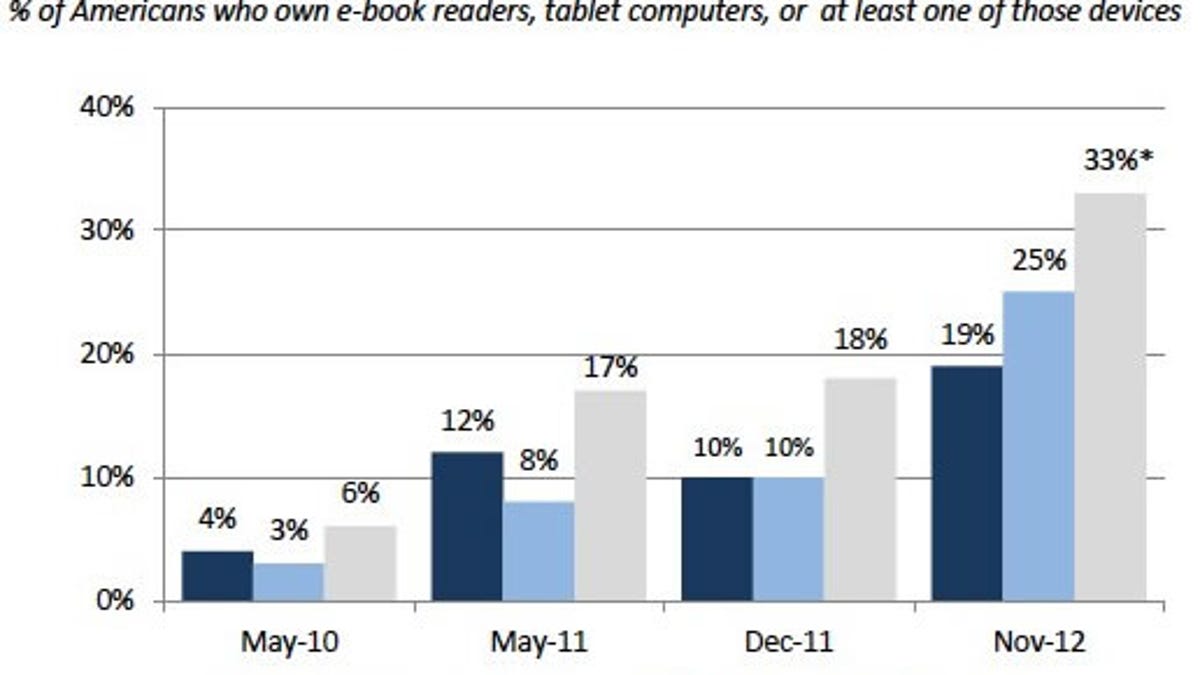Tablets more popular than e-readers among e-book crowd
One third of people polled by Pew Internet own an e-book reading device, though tablets get the nod over dedicated e-readers.

More people are reading e-books, and more of them are using tablets as their primary way of doing so.
The percentage of Americans who now read e-books rose to 23 percent in 2012 from 16 percent a year ago, says a report out today from Pew Internet. Over the same time, the percentage of those who read printed books dropped to 67 percent from 72 percent.
From the poll conducted in October and November, the percentage of people who own a tablet or dedicated e-reader jumped to 33 percent from just 18 percent a year ago.
But among the two types of devices, tablets are proving more dominant.
As of November, 25 percent of those polled said they own a tablet, while 19 percent own a dedicated reader. Last year, both devices were neck and neck with 10 percent ownership. And surveys taken in May 2011 and 2010 showed e-readers then more popular than tablets.
Libraries are also feeling the greater interest in e-books. The percentage of people who borrowed an electronic book from their library rose to 5 percent from 3 percent a year ago. And the share of those who are aware that their libraries offer e-books increased to 31 percent from 24 percent last year.
Who's reading all these e-books?
Among those polled, the ones most likely to read an e-book included people with college or graduate degrees, those with households incomes more than $75,000, and folks between 30 and 49 years old.
Men and women were about on par, while people living in urban areas came in higher than those in suburban or rural communities.
I've always tended to prefer printed books, in large part because of their feel and texture. And I enjoy just browsing through the variety of books on the shelves at my local library and choosing one at random.
But after buying the 7-inch Google Nexus tablet, I now read e-books more frequently. For me, the experience still isn't the same, but the convenience and accessbility to electronic books is definitely appealing.
Pew's data is based on a survey conducted from October 15 to November 10, 2012 among 2,252 Americans ages 16 and older.

